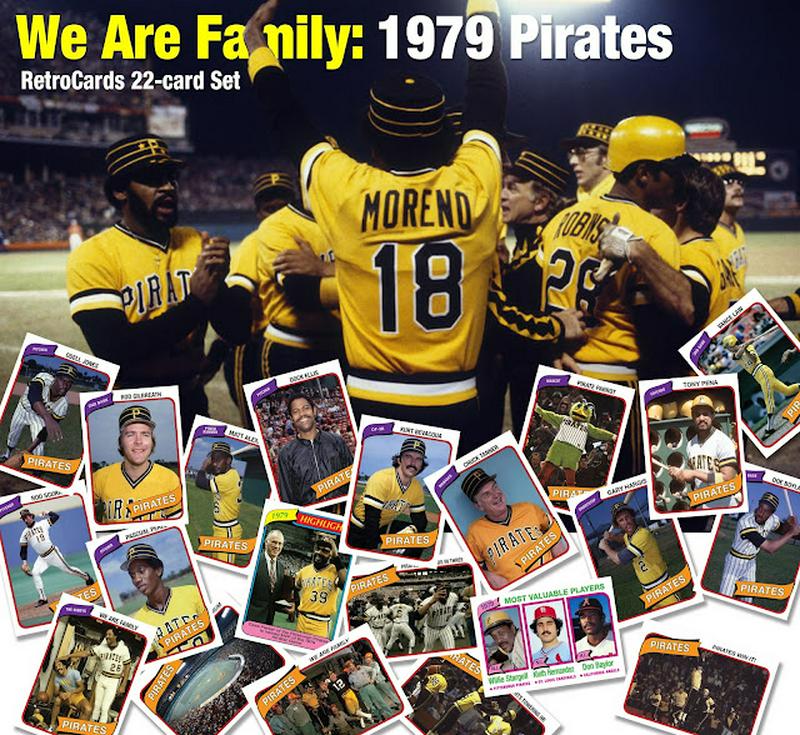The "We Are Family" Pirates And The Anthem of '79
By | September 20, 2021

In 1979, the Pittsburgh Pirates rode the catchy tune, “We Are Family” by “Sister Sledge” to become one of the most unlikely champions in sports history. With a soundtrack bred by the ‘70s, the Pirates took themselves and the song to heights never before seen by either. Before Pittsburgh took off, “We Are Family” enjoyed a modest run of success. After it became the song of the summer, the album and single both sold over a million copies.
The unlikely hit also ranked as the second pop song on Billboard’s charts for the year. The good vibes of “We Are Family” imbued the city and team with a belief that anything was possible as long as they relied on one another.

How “We Are Family” Came To Be Pittsburgh's Theme Song
June of ‘79, the Pirates resembled anything but champions. As early as May 20th, the team owned a losing record. A spirited five-game winning streak into June managed to improve their record to 23-21, going into a homestand with the San Diego Padres. In the first game, the Pirates pulled off a wild comeback, rallying down 8-5 going into their final at-bats. In a jubilant locker room afterward, team captain Willie Stargell put on “We Are Family” by Sister Sledge and something special started.

Special Stargell
The Pirates would go on to tally 25 comeback victories that season. And to a man, Stargell was the start of it all. As second baseman Phil Garner put it, “He was so well-loved and respected by everybody. We had guys from Panama, black players from the ’hood, white players from the ’hood, we had all kinds of socioeconomic backgrounds. I think Willie Stargell’s presence and leadership held all that together.”
The all-star first baseman could lead with a pat on the back or a kick in the butt. Bench player Mike Easler characterized it best, “All of us got along and if you didn’t get along with somebody, Willie (Stargell) made sure you got along with everybody.” Reportedly, Stargell told struggling relief pitcher Kent Tekulve, during a World Series game no less, “If you want to go play first base, I’ll pitch if that’s the way you’re going to throw to this guy.” Obviously, the beloved captain dubbed “pops” knew all the right buttons to push. However, he wasn’t the only leader in the clubhouse...

Manager Chuck Tanner
Like Stargell, manager Chuck Tanner knew how to handle his team collectively and his players individually. As Easler remembered, “I was trying to be nice. Chuck literally grabbed me and picked me up in the air and said, ‘Look, you just signed a contract, therefore you do what we tell you to do.’ I said, ‘Yes sir,’ and he put me back down.” “When you have a relationship with a group of people, it doesn’t matter who’s the one who takes you over the top or brings you down. You’re a team. That was a big deal with Chuck,” said shortstop Tim Foli.
After Pittsburgh went down 3-1 to Baltimore in the World Series, Tanner knew exactly what his team needed. Normally after losses in the postseason, a somber mood sets in over the team. “Chuck came in and said, ‘Listen, we’re the best team and we’re gonna win. Turn the music up as loud as you want,’ ” said Don Robinson, the winning pitcher in Game 2. They went on to become one of only six teams in the 20th century to overcome a 3-1 deficit in the World Series.

Win Together, Lose Together, Party Together
From that comeback victory in early June through the victory parade in the fall, “We Are Family” proudly blasted at every turn. “We just treated each other like we were brothers,” said Easler. “And the song ‘We Are Family’ helped,” added Garner. “We Are Family” was quickly seen on every corner in the city and on every person’s clothing. The team lived their soundtrack’s motto.
“If we lost two games, that was a slump for us. And if we were on the road, we would use that as an excuse to have a party,” said Utility infielder Rennie Stennett. “Everybody would get together, put in like 20 bucks and rent a suite and get in there and have a few drinks and talk about why we thought we weren’t winning. And it never failed — the next day we’d go out and blow somebody out.”

A Team Apart
“This team was much different than any team I played for,” Pitcher John Candelaria declared. “There were some teams that I won’t name that I can’t believe how quiet it was in their clubhouse, as opposed to the lunatics I dealt with here. We were boisterous in the clubhouse, but when we crossed the lines, the guys played. We believed in ourselves.”
Kim Sledge was ecstatic about the song’s revival but wishes her hometown Phillies could have been the team to ride their song. “It’s a miracle. We thought the song had made as much noise as it ever would. Then the Pirates came along. We appreciate our Phillies. They should have used our song.”
